Pediatric intestinal disorders
Pediatric intestinal disorders (in·tes·ti·nal - dis·or·ders) cover a wide range of injuries and conditions that impact a child’s intestines.
What are pediatric intestinal disorders?
The small and large intestines (colon or bowel) are part of the digestive system. About 90% of the digestion and absorption of nutrients occur in the small intestine. Disorders or injuries to the intestines can cause pain, disrupt digestion, slow development, or create life-long or life-threatening complications.
What are the different types of pediatric intestinal disorders?
There are several types of intestinal disorders, including those noted below. They can be found in the small or large intestine only, or in both.
Large intestine disorders
Colonic polyps - also known as colorectal polyps or colon polyps; these are tissue masses in the colon or rectum that can become cancerous.
Colorectal cancer - benign or malignant tumors in the colon and rectum.
Diverticulitis - inflammation (swelling) or infections of diverticulosis pouches, located in the colon. Occurs when the wall muscles of the colon weaken and lose elasticity (ability to expand/contract) due to continual stress from hardened stools. This also includes Pediatric Meckel’s diverticulum.
Irritable bowel syndrome (IBS) - also known as spastic colon, this condition is associated with bloating, constipation, diarrhea, gas and pain.
Ulcerative colitis - a form of inflammatory bowel disease (IBD) where the intestinal lining becomes inflamed.
Small intestine disorders
Adenocarcinoma - starts in the cellular lining of the small intestine and is the most common type of small intestine cancer.
Celiac disease - a painful, immune system reaction that occurs when the child eats gluten (protein found in barley, rye and wheat).
Intestinal malrotation - a congenital disorder where the intestines rotate incorrectly and are mainly found on the right side.
Small and large intestine disorders
Bleeding - a general disorder caused by ulcers, cancer, diverticulitis or polyps. Surgery may be necessary to determine the cause.
Crohn's disease - an inflammation of the digestive system. It affects any area of the intestines from the mouth to the anus, but often impacts the lower section of the small intestine (ileum).
Infections - can be viral, bacterial or parasitic, including gastroenteritis (inflammation in the stomach and small intestine) and tapeworms.
Inflammatory bowel disease (IBD) - when a child has inflammation of the digestive tract.
Intestinal atresia (IA) - occurs when a child’s intestine doesn’t properly form during development and prevents food and bowel movements from properly moving through digestion stages.
Obstructions (blockages) - happen for several reasons, including damaged sections from Crohn’s disease or diverticulitis, hernias_,_ medications and scar tissue. Obstructions can also prevent food from digesting and bowel movements.
What are the signs and symptoms of pediatric intestinal disorders?
The type of condition defines the symptoms. Symptoms will appear at various ages, locations and range in severity. Children can experience one or more of the following:
Bleeding (from rectum or in stool)
Bloating or abdominal distention
Corresponding disorders in organs (liver, spleen)
Cramping and pain
Fatigue
Fever
Gas
Irritability
Loss of appetite
Rosacea
Slow or delayed growth
Ulcers
Vomiting or spitting up
What are the causes of pediatric intestinal disorders?
Intestinal disorders can result from a number of conditions. Each condition has its own cause and average age of diagnosis. The disorders can occur for many reasons, and include:
Autoimmune response (body attacks healthy cells)
Cancer
Congenital (present at birth)
Environmental (cigarette smoke or drinking household cleaners)
Genetic/hereditary (passed down through families)
Unknown triggers (idiopathic)
Pediatric intestinal disorders doctors and providers
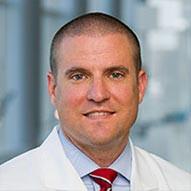 Adam Alder, MDPediatric Surgeon
Adam Alder, MDPediatric Surgeon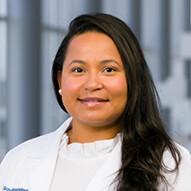 Natasha Corbitt, MDPediatric Surgeon
Natasha Corbitt, MDPediatric Surgeon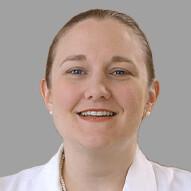 Diana Diesen, MDPediatric Surgeon
Diana Diesen, MDPediatric Surgeon Barbara Gaines, MDPediatric Surgeon
Barbara Gaines, MDPediatric Surgeon Lauren Gillory, MDPediatric Surgeon
Lauren Gillory, MDPediatric Surgeon Russell Hawkins, MDPediatric Surgeon
Russell Hawkins, MDPediatric Surgeon Charles Hong, MDPediatric Surgeon
Charles Hong, MDPediatric Surgeon Stephen Megison, MDPediatric Surgeon
Stephen Megison, MDPediatric Surgeon Carrie Moore, MDPediatric Surgeon
Carrie Moore, MDPediatric Surgeon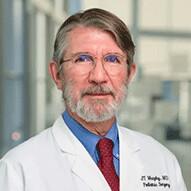 Joseph Murphy, MDPediatric Surgeon
Joseph Murphy, MDPediatric Surgeon Samir Pandya, MDPediatric Surgeon
Samir Pandya, MDPediatric Surgeon Laura Purcell, MDPediatric Surgeon
Laura Purcell, MDPediatric Surgeon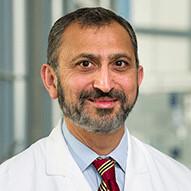 Faisal Qureshi, MDPediatric Surgeon
Faisal Qureshi, MDPediatric Surgeon Muraleedharan Sivarajan, MDPediatrician - Newborn Medicine
Muraleedharan Sivarajan, MDPediatrician - Newborn Medicine